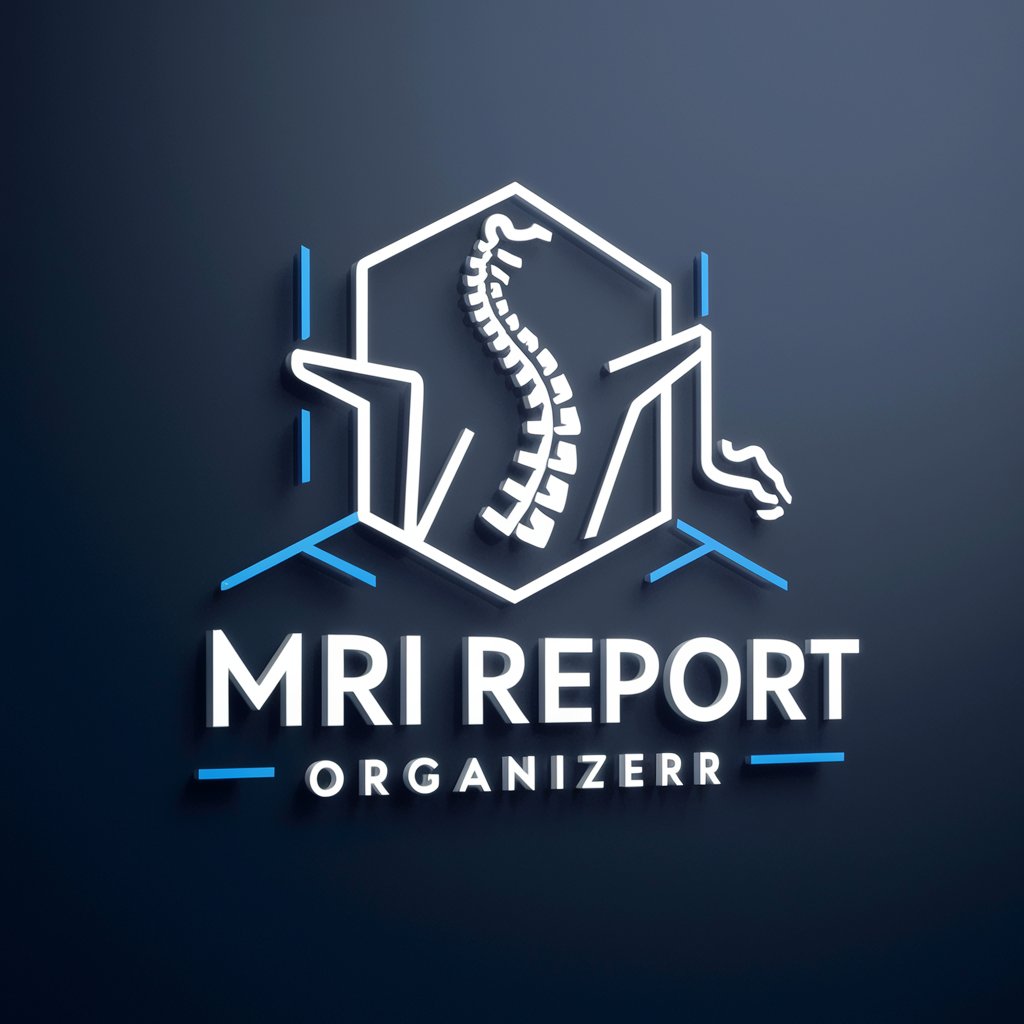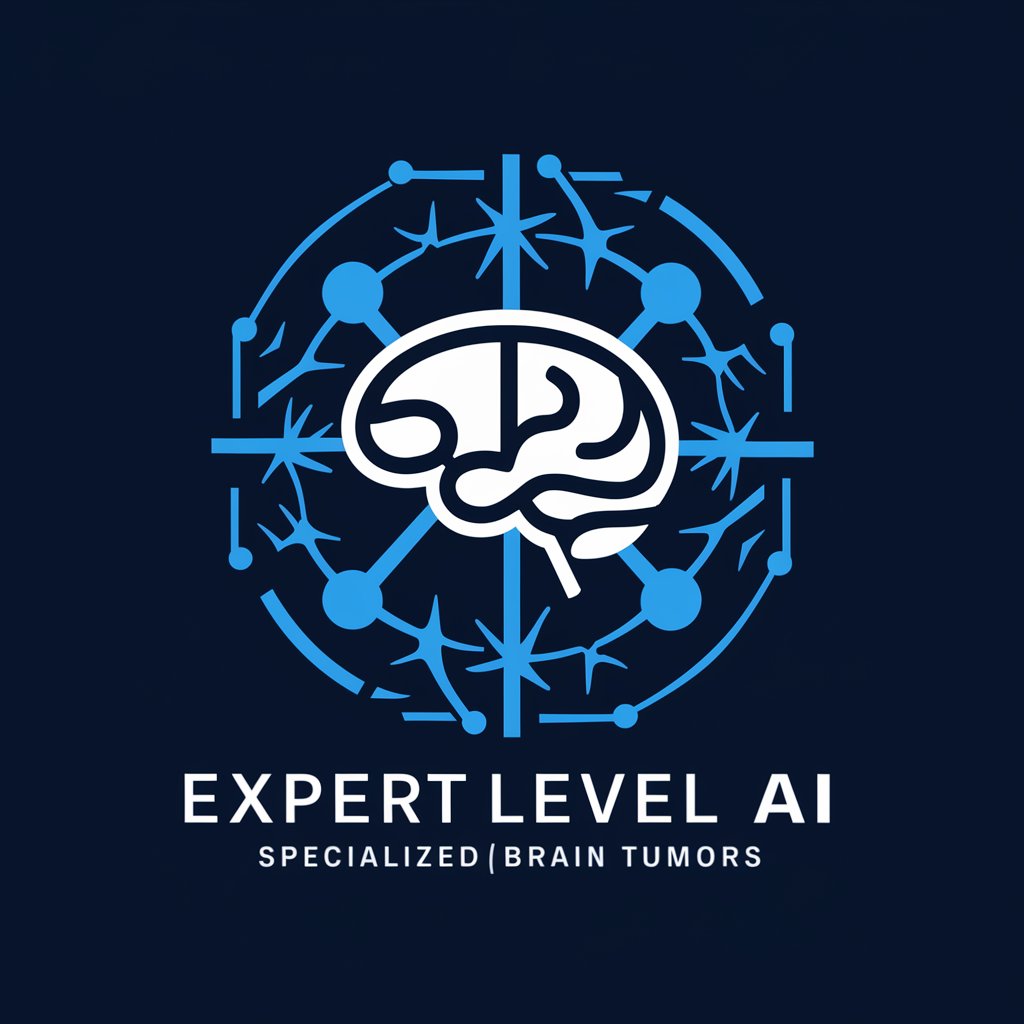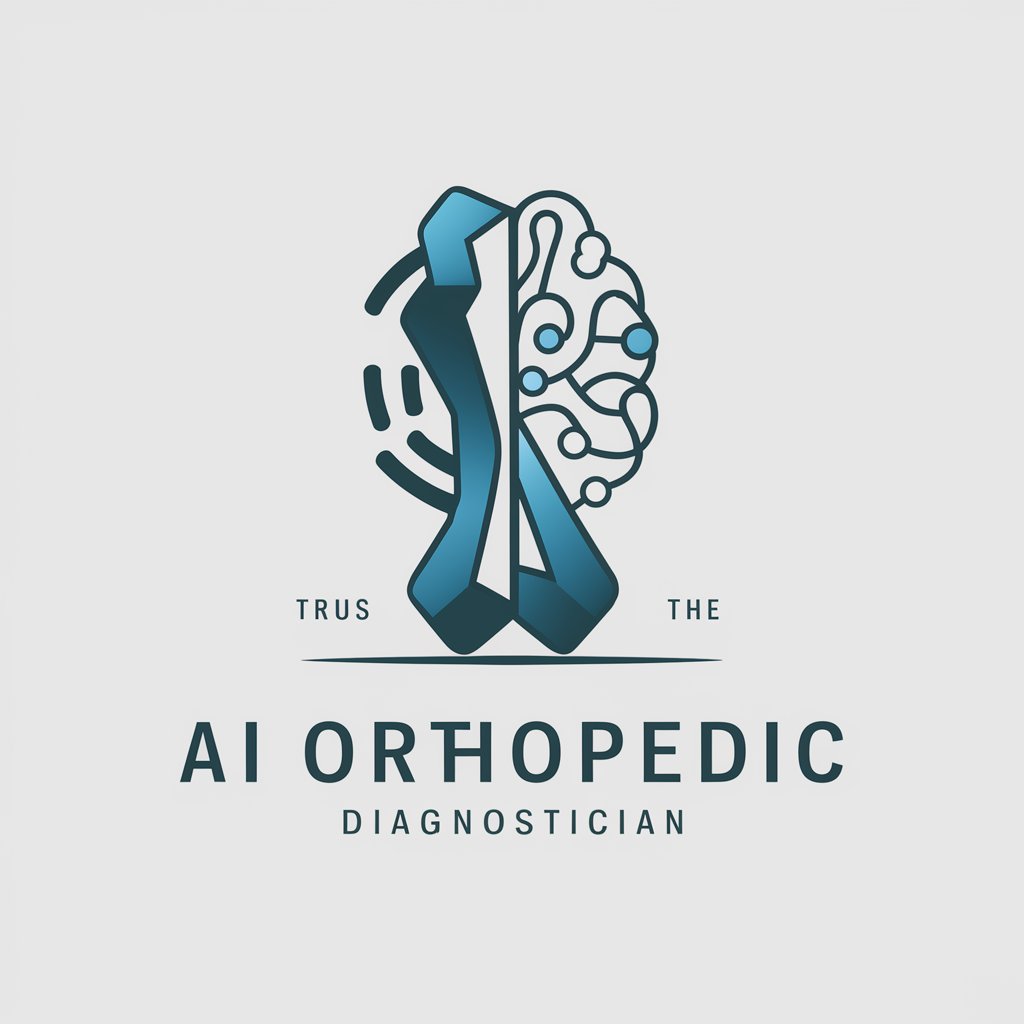
MRI Diagnostic Expert - AI-powered MRI analysis
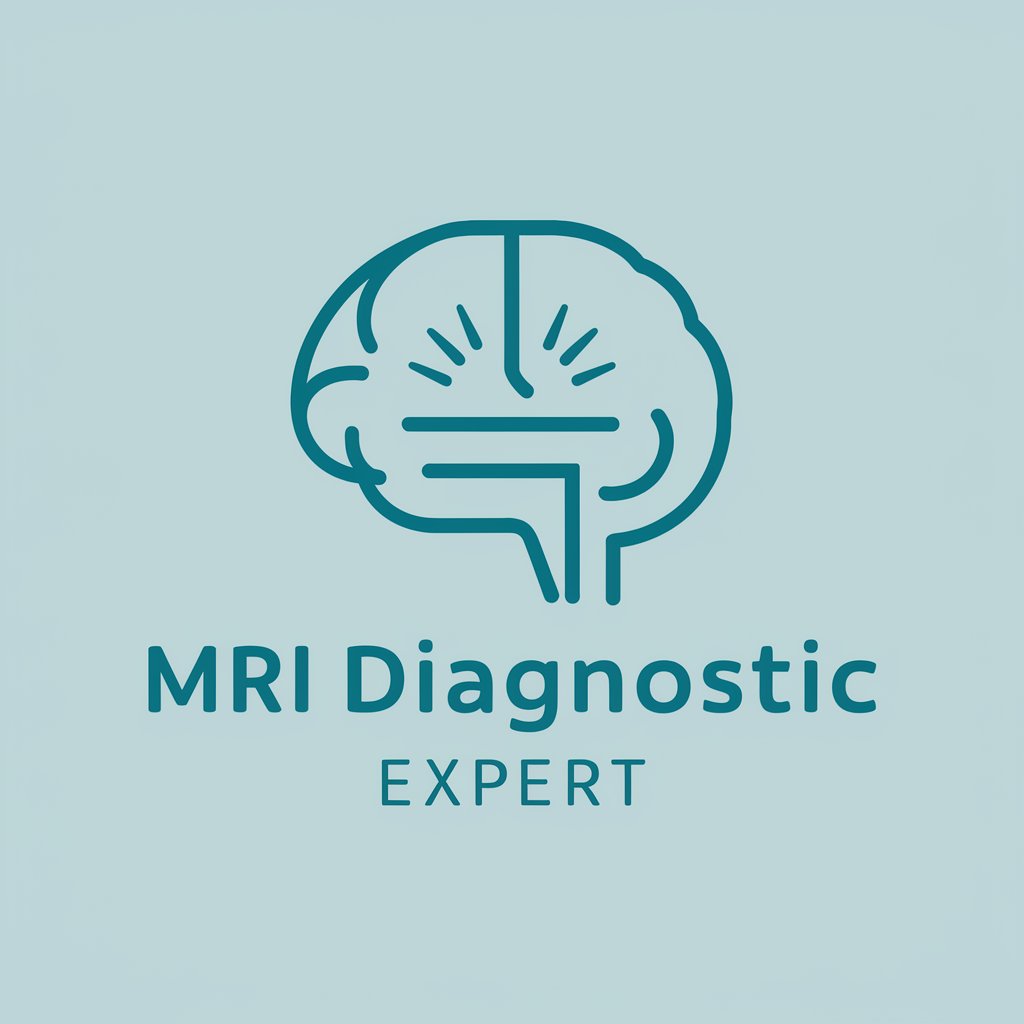
Hello! I'm here to help you understand your MRI results and provide support.
Unlock insights from MRI scans with AI
Can you help me understand the MRI results for my lower back pain?
I'm feeling anxious about my recent MRI scan. What should I look for in the results?
My MRI report mentions some medical terms that I don't understand. Could you explain them?
What does it mean if my MRI results show abnormalities in my brain scan?
Get Embed Code
MRI Diagnostic Expert: An Overview
MRI Diagnostic Expert is a specialized tool designed to support users in understanding and interpreting MRI scans. Its primary aim is to bridge the gap between complex medical imaging results and users' comprehension by providing detailed explanations, insights, and potential implications of MRI findings. Through a blend of advanced technology and user-friendly communication, it assists in demystifying the technical aspects of MRI results. For instance, if a user uploads an MRI scan of the knee, MRI Diagnostic Expert can highlight common findings such as meniscal tears or signs of osteoarthritis, offering a preliminary analysis before a professional medical review. Powered by ChatGPT-4o。

Core Functions of MRI Diagnostic Expert
Interpretation Assistance
Example
Identifying and explaining common spinal abnormalities in lumbar spine MRI scans, such as herniated discs or spinal stenosis.
Scenario
A user concerned about lower back pain uploads their lumbar spine MRI, and the tool provides an accessible breakdown of the findings, explaining the potential causes of their symptoms.
Educational Insights
Example
Explaining the significance of different MRI sequences (e.g., T1 vs. T2) and how they contribute to diagnosing various conditions.
Scenario
A medical student uploads an MRI scan to learn about the diagnostic differences between T1-weighted and T2-weighted images in identifying brain tumors.
Anomaly Detection
Example
Highlighting unusual findings in brain MRIs, such as tumors, lesions, or signs of multiple sclerosis.
Scenario
A user uploads a brain MRI scan worried about persistent headaches. The tool outlines any anomalies and suggests possible explanations, advising further consultation with healthcare professionals.
Target User Groups for MRI Diagnostic Expert
Patients and General Public
Individuals seeking preliminary insights into their own or a family member's MRI scans. They benefit from the tool's ability to translate technical findings into understandable language, helping to alleviate anxiety and better prepare them for medical consultations.
Medical Students and Early-Career Professionals
This group uses the service as an educational tool to enhance their understanding of MRI technology, interpretation skills, and familiarization with a wide range of medical conditions, bridging the gap between theoretical knowledge and practical application.
Healthcare Professionals
Experienced practitioners may use the service for a second opinion or to confirm their own findings. It serves as a valuable aid in complex cases, providing additional perspectives and supporting the diagnostic process.

How to Use MRI Diagnostic Expert
1
Begin by accessing a no-cost trial at yeschat.ai, no sign-up or ChatGPT Plus required.
2
Prepare your MRI scan images for upload. Ensure they are clear and in a supported format for analysis.
3
Upload your MRI images using the provided interface, following any specific instructions for best results.
4
Review the automated analysis provided by the MRI Diagnostic Expert, which includes interpretations and potential findings.
5
Consult with a healthcare professional to discuss the results and obtain an accurate diagnosis or treatment plan.
Try other advanced and practical GPTs
AI Diagnostic Assistant
Empowering Diagnostics with AI

Car Diagnostic AI
Diagnose Vehicle Issues with AI
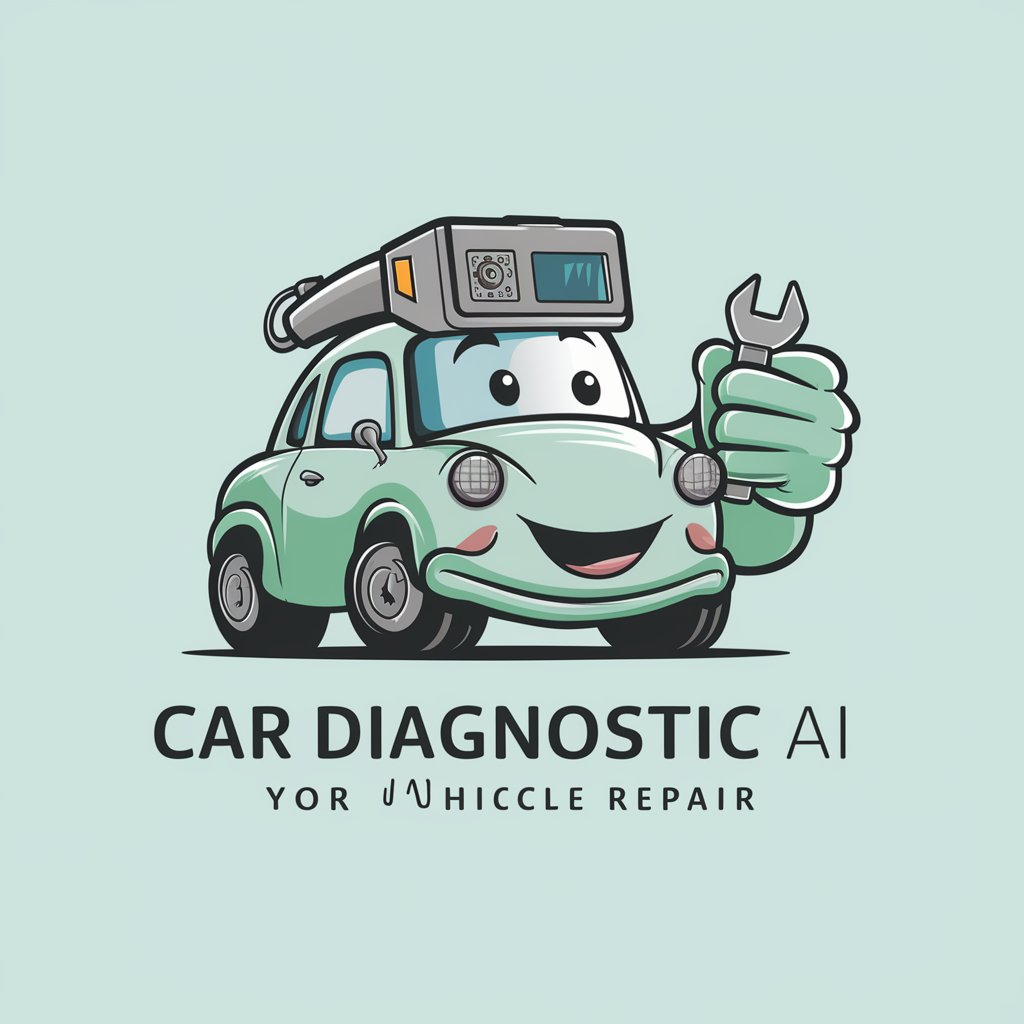
Diagnostic Quiz Generator (Educator)
Empower Learning with AI-Driven Quizzes
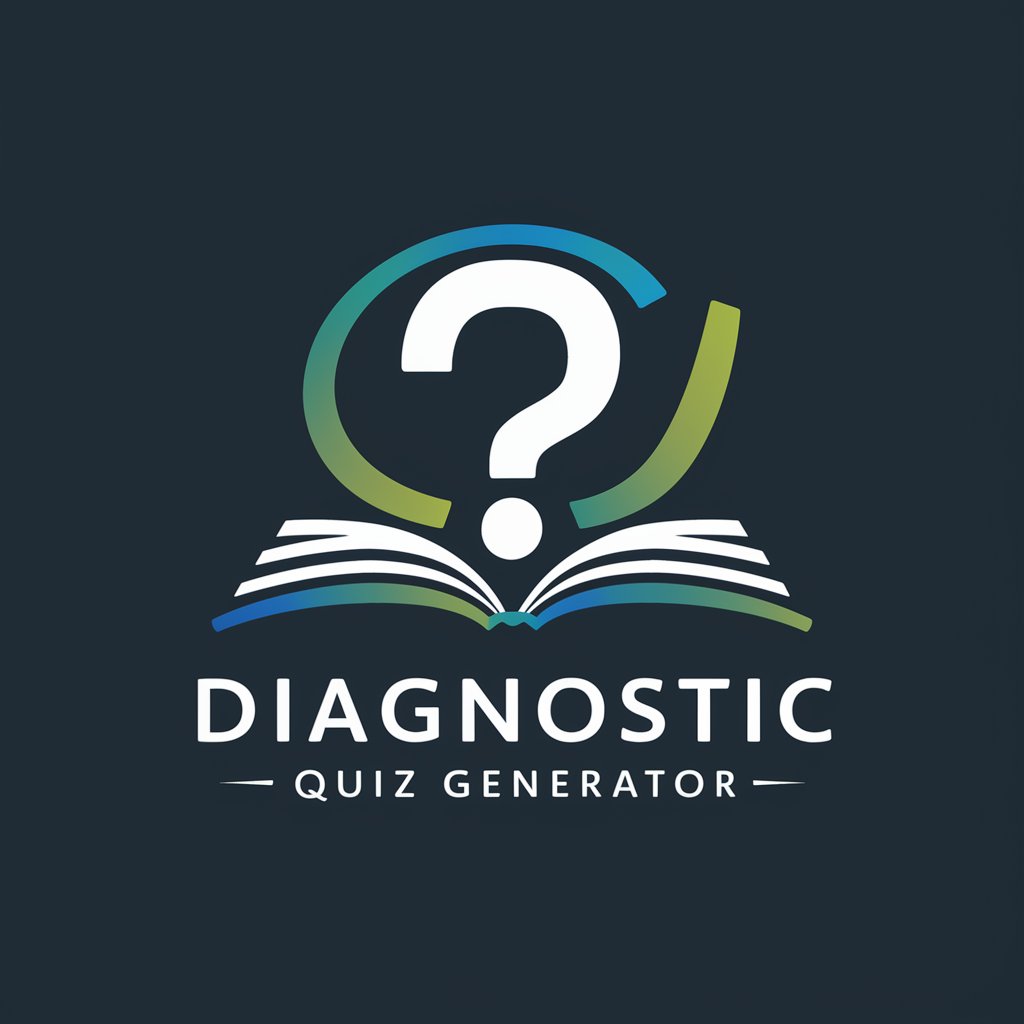
Innovative Diagnostic Tool
Transforming Data Into Insights

RV Comprehensive Diagnostic Expert
AI-powered RV diagnostics and buying guide

Real Estate Wholesale Tool
AI-powered insights for real estate wholesaling

XRay Diagnostic Assistant
AI-powered diagnostics for X-ray images.

Legal Marketing Guru
Empowering legal professionals with AI-driven marketing solutions.

Japan Economie Expert
Explore Japan's economy with AI-powered insights

Kardashian Shopper Assistant GPT
AI-powered Kardashian style navigator.

founders
Empowering Startups with AI

Quantum Insights
Accelerate learning and project execution with AI.

MRI Diagnostic Expert Q&A
What types of MRI scans can MRI Diagnostic Expert analyze?
MRI Diagnostic Expert is equipped to analyze a variety of MRI scans, including brain, spinal, musculoskeletal, and abdominal scans, providing detailed interpretations based on the images.
How accurate is MRI Diagnostic Expert's analysis?
While MRI Diagnostic Expert utilizes advanced algorithms for image analysis, it's important to remember that the accuracy can vary and it's recommended to use the results as a supplementary tool alongside professional medical advice.
Can MRI Diagnostic Expert detect specific conditions?
Yes, the tool is designed to identify and highlight potential conditions or abnormalities within the scanned area, such as tumors, inflammations, or structural anomalies. However, a healthcare professional should always confirm the diagnosis.
Is MRI Diagnostic Expert suitable for non-professionals?
Absolutely. MRI Diagnostic Expert is designed to be user-friendly, making complex MRI data accessible and understandable for individuals without a medical background, though professional consultation is advised for interpretation and next steps.
What should I do if the analysis indicates a potential problem?
If the analysis suggests a possible issue, it's crucial to consult with a healthcare provider who can conduct a thorough evaluation and confirm the diagnosis. The tool aims to assist in early detection and to encourage timely professional consultation.


